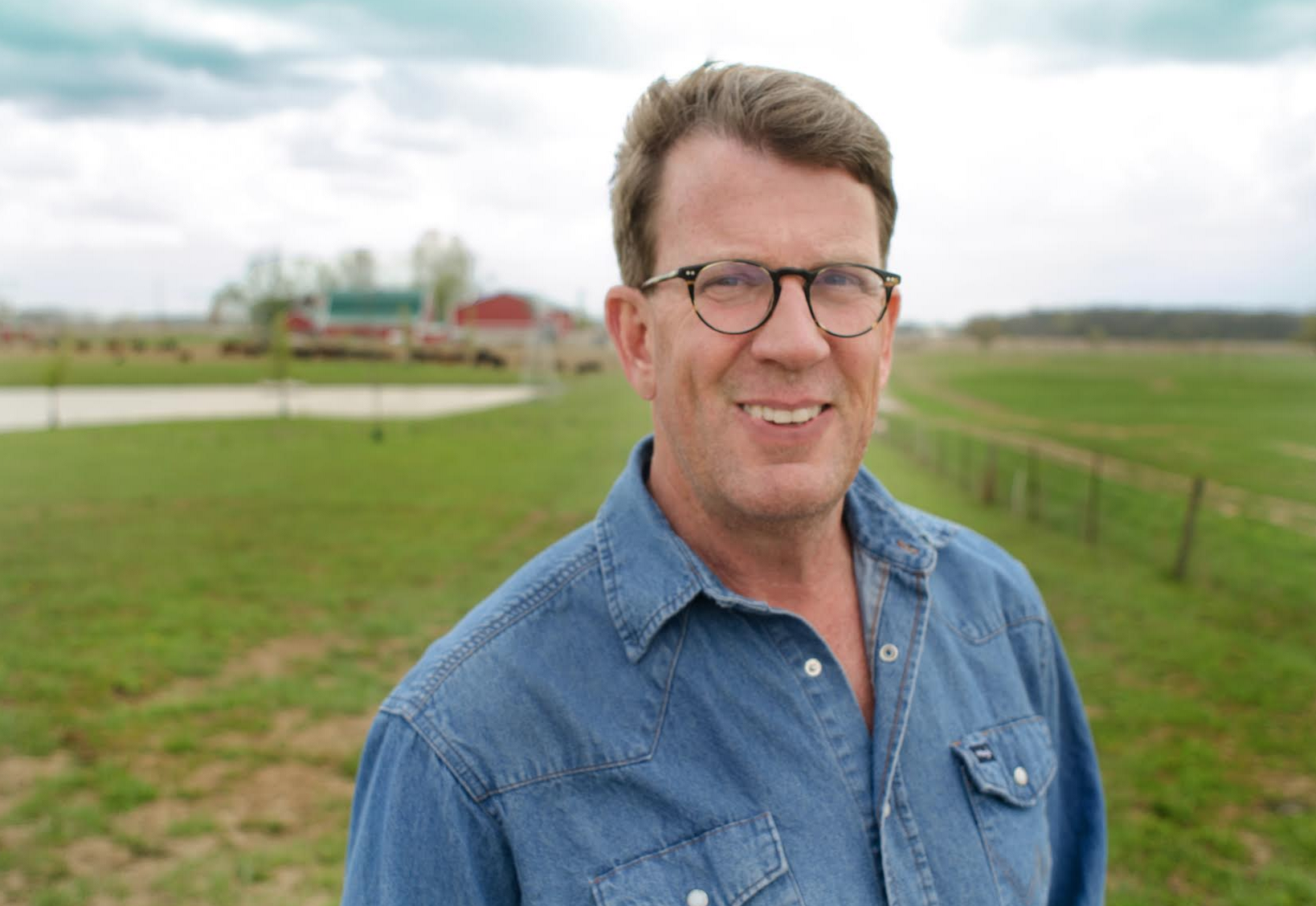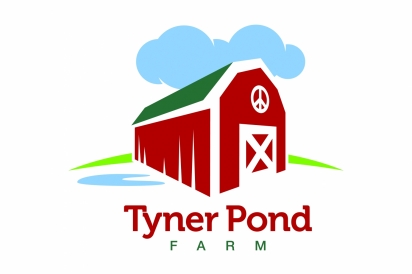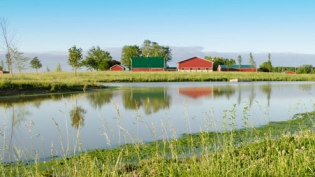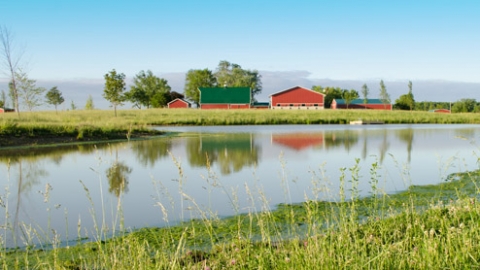Chris Baggott shares his start-up know-hows
The food business is booming—and it’s changing.
Chris Baggott is dressed to get dirty in his denim work shirt, jeans and boots. As we sit drinking coffee in the cozy farmhouse at Tyner Pond Farm in Greenfield, his phone rings relentlessly and he frequently consults his Apple watch mid-sentence, interrupting himself. But he never loses track of what he was saying. His focus is laser-sharp, his energy is palpable and his ideas about the food business tumble out of him like Cheerios into a cereal bowl.
Just a Few Ideas...
Fresh and local produce and meat dropped off in your neighborhood you and your neighbors can share? He’s doing it.
Perfectly timed and piping hot dinners delivered to your doorstep with the ease of ordering an Uber? Done and done.
Wish you could enjoy freshly frozen corn from a farm 10 miles away in the dead of winter? Go look for a label that says Husk in your local grocery store.
Ever heard of sous vide? Maybe you’ve never tried to do it, but you’ll want to after you realize you can have it delivered right to your house all ready to cook.
Think you might enjoy a truly local hot dog accompanied by freshly cut fries from local potatoes in a fast-food setting? Visit Baggott’s farm-to-curb restaurant, The Mug, in Greenfield.
Solving the Big Problem
If you have a food dream, Chris Baggott probably has an idea about how to make it come true. (More likely, he’s already doing it.) After prospering for years in the ethereal world of software innovation—he was the co-founder of ExactTarget—he could have rested on his laurels and counted his piles of money for the rest of his days. But instead, he’s off to meet a pig farmer on the other side of the county as soon as we’re done chatting. Why?
“I like big problems,” Baggott said with an impish grin. “The quality of our food supply is a big problem.”
Baggott is working steadfastly to solve that problem in so many different ways it’s hard to keep up, but suffice it to say he’s creating an environment in Central Indiana where small food start-ups might have a better chance than they would just about anywhere else in the country.
Choice and Convenience
“There’s a trickle-down effect when it comes to educating consumers,” Baggott said. “Starbucks taught us how to drink coffee. Sam Adams taught us about craft beer. There was a time when we were all perfectly happy with Maxwell House, Gallo Wine and Bud Light. But these large producers gave rise to the wave of local coffee shops, wineries and microbreweries we’re devoted to today. So we’ve become coffee and beer snobs, but many of us will still choose the cheapest pork chop in the case, even though we have no idea where it came from or how it was handled. We need to create the demand for the same quality in our food. If the price is the same or only slightly more, and the quality is superior, why wouldn’t we all choose it? It’s a no-brainer.”
“Americans want two things: choice and convenience. So if we can create the technology that gives them both, but on a local scale, everyone wins. Indiana consumes $17.8 billion worth of food every year; shouldn’t that food come from Indiana?”
Baggott is using his expertise in the software world to create technology that solves the biggest problem anyone with a food start-up faces: distribution. Through platforms such as FarmersMarket.com and a coalition called Farm League, he’s creating what he calls a “coopetition.” He’s providing a virtual farmers’ market in which anyone—whether it’s your Aunt Susie, who’s been pickling her own beets for years in her basement; a pig farmer who makes the best Italian sausage anyone has ever tasted; or a grower of pea shoots—can hawk their wares in front of a larger audience than just the once-a-week-in-the-summer local farmers’ market.
Bringing Food Start-ups to a Broader Scale
In addition to helping raise demand and awareness on a broader scale, he’s also lending support directly to food start-ups through projects such as ClusterTruck and formerly at Husk (the latter was in partnership with Nick Carter and the business was sold in January of this year).
ClusterTruck offers in-home food delivery from state-of-the-art kitchens around the city that are designed exclusively for carryout production. He’s enlisted local food truck chefs to provide recipes and he features them on a rotating basis, thus raising the profiles and exposure of these independent operators. And as of last fall in the Husk production facility, they weren’t just flash-freezing and distributing local produce in support of farmers growing non-GMO beans, corn and squash. They were also sharing the space with a few small food producers and through Husk’s distribution system, helped them get products into consumers’ hands.
Two of those businesses included Brooke Schmidt’s Brooke’s Naturals, an expanding line of gluten-free baking mixes, and Urban Ladle, a line of soups created by Marcie Douglass and Lisa Sprunger, who went from producing 100 to 600 quarts a day after moving their production facilities to Husk.
“Millennials don’t want to cook, period,” Baggott stated emphatically. “Anyone entering the food business right now needs to understand that. They want immediate gratification; they don’t want to wait for anything and they want push-button convenience. I believe that they will ultimately marvel that we used to park our cars in a grocery store parking lot and carry groceries home. If a food start-up can design their products for this new paradigm, I believe they can be successful.”
Get Social
What’s his one biggest piece of advice to those who are looking to jump into the pool of selling the food they grow or produce?
Get a Facebook page. (Edible Indy recommends getting Twitter, Instagram, and Snapchat.)
Lest you think social media doesn’t matter, consider that Husk’s Facebook page has over 80,000 likes and incredibly interactive conversations on it, in which folks are sharing all of the ways they use these local products.
“Social media is the new word-of-mouth,” he said. “If you can get your own little group of customers to become your advocates online, the demand and awareness will grow, and a marketplace will rise up for Aunt Susie’s beets, or whatever it is that you’re selling. Our local grocery stores are playing catch up right now, trying to jump on board the passion for local food before they become obsolete altogether.
We all need to show them that, as consumers, we demand to know where our food came from and we demand quality and freshness over just the cheapest price.”
It’s Business
While Baggott continues his mission of creating opportunities and awareness for food start-ups throughout Central Indiana, make no mistake: He’s not an angel investor writing checks to anyone with a recipe and a dream. He’s a businessman. He’s building a network in which local food growers and producers can flourish, and he’s creating jobs and economic impact while he’s at it. And as he continues to expand—Irvingtonians can look forward to a new butcher shop, an additional The Mug and another Griggsby’s Station (there’s one in Greenfield)—the local food scene will only become more diverse and cutting edge. There’s never been a better time to start up.








